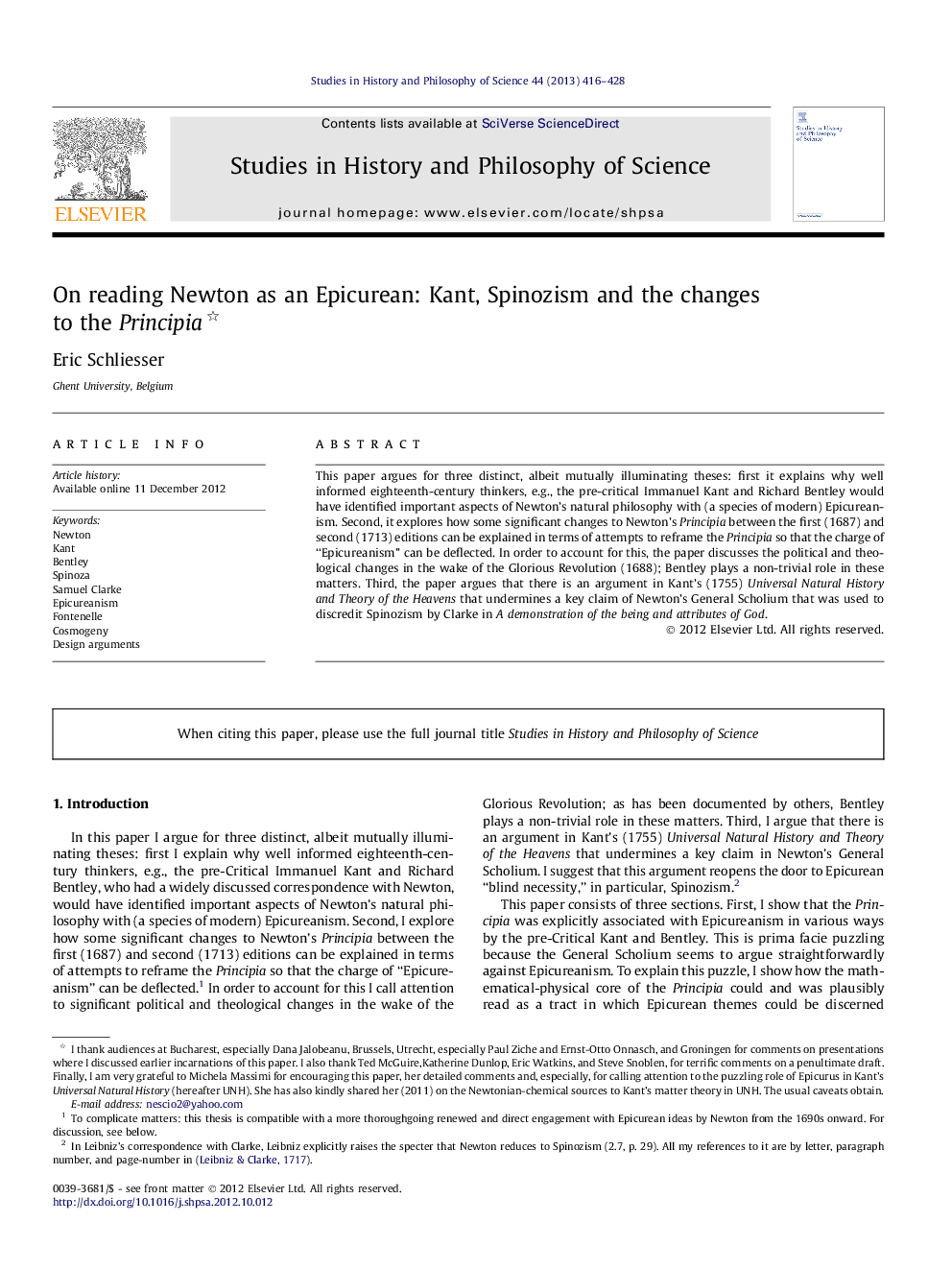| Article ID | Journal | Published Year | Pages | File Type |
|---|---|---|---|---|
| 1160463 | Studies in History and Philosophy of Science Part A | 2013 | 13 Pages |
This paper argues for three distinct, albeit mutually illuminating theses: first it explains why well informed eighteenth-century thinkers, e.g., the pre-critical Immanuel Kant and Richard Bentley would have identified important aspects of Newton’s natural philosophy with (a species of modern) Epicureanism. Second, it explores how some significant changes to Newton’s Principia between the first (1687) and second (1713) editions can be explained in terms of attempts to reframe the Principia so that the charge of “Epicureanism” can be deflected. In order to account for this, the paper discusses the political and theological changes in the wake of the Glorious Revolution (1688); Bentley plays a non-trivial role in these matters. Third, the paper argues that there is an argument in Kant’s (1755) Universal Natural History and Theory of the Heavens that undermines a key claim of Newton’s General Scholium that was used to discredit Spinozism by Clarke in A demonstration of the being and attributes of God.
